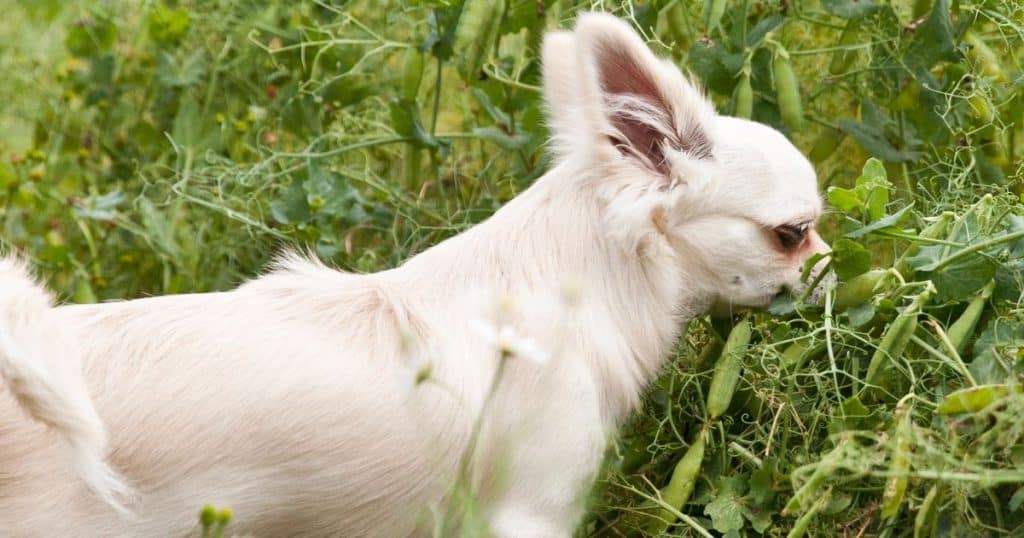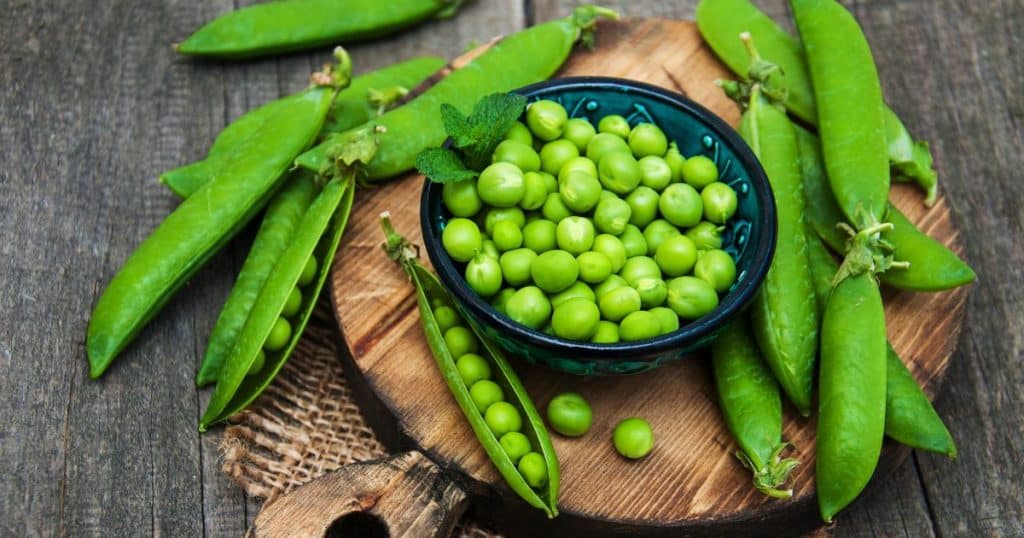Table of Contents
Peas are a popular ingredient in many dog foods due to their high protein and fiber content. However, some dog owners have raised concerns about whether or not dogs can be allergic to peas. While peas are generally safe for dogs to eat, some dogs may have an allergic reaction to them.
Are Dogs Allergic to Peas?

According to the American Kennel Club, peas are not toxic or poisonous to dogs, but they may cause an allergic reaction in some dogs. Symptoms of a pea allergy in dogs can include itching, redness, swelling, and hives. If you suspect your dog may be allergic to peas, it is important to consult with your veterinarian to determine the best course of action.
In this article, we will explore the topic of whether or not dogs can be allergic to peas in more detail. We will examine the potential causes of pea allergies in dogs, the symptoms to look out for, and the best ways to manage and treat this condition. By the end of this article, you will have a better understanding of whether or not peas are safe for your furry friend to eat.
What Are Peas?

Peas are a type of legume that is commonly used in human and pet food. They are a good source of protein, fiber, and vitamins, making them a popular choice for many pet food manufacturers.
There are several types of peas, including garden peas, snow peas, and sugar snap peas. Garden peas, also known as English peas, are the most commonly used type of pet food. They are typically dried and ground into a powder or used as a whole food ingredient.
Peas are also a popular ingredient in grain-free pet foods, as they can be used to replace grains like wheat and corn. This makes them a good option for pets with grain sensitivities or allergies.
Can Dogs Eat Peas?

Peas are a common ingredient in many dog food products and are often used as a healthy filler. However, dog owners may wonder if peas are safe for their furry friends to consume. Here we explore the benefits and risks of feeding peas to dogs.
Benefits of Feeding Peas to Dogs
Peas contain many essential nutrients that can benefit dogs when consumed in moderation. For example, peas are a good source of protein and dietary fiber, which can aid in digestion and promote a healthy weight. Peas also contain vitamins A, B, C, and K, and are rich in essential nutrients like folate, thiamin, and manganese.
Additionally, peas can help support a dog’s immune system and promote healthy skin and coat. Some studies suggest that peas may even have anti-inflammatory properties that can benefit dogs with joint issues.
Risks of Feeding Peas to Dogs
While peas are generally safe for dogs to consume, there are some risks to be aware of. For example, some dogs may be allergic to peas, which can cause symptoms like itching, hives, and digestive upset. If your dog experiences any of these symptoms after consuming peas, it’s best to avoid feeding them peas in the future.
Another potential risk of feeding peas to dogs is that they may contribute to weight gain if consumed in excess. Peas are high in carbohydrates, which can lead to weight gain if not balanced with other nutrients and consumed in moderation. Additionally, some dog food products may contain a high amount of peas as a filler, which can lead to an unbalanced diet if not monitored.
Overall, peas can be a healthy addition to a dog’s diet when consumed in moderation and in the right balance with other nutrients. However, it’s important to monitor your dog’s reaction to peas and ensure that they are not consuming too much of this ingredient in their diet.
Pea Allergy in Dogs

Peas are a common ingredient in many commercial dog foods, but some dogs may develop an allergy to them. If your dog is experiencing symptoms of an allergic reaction, it may be due to a pea allergy.
Symptoms of Pea Allergy in Dogs
A dog with a pea allergy may display a range of symptoms, including:
- Itching
- Hives
- Swelling of the face, ears, lips, eyelids, or earflaps
- Red, inflamed skin
- Ear infections
- Vomiting
- Diarrhea
- Difficulty breathing
Diagnosis of Pea Allergy in Dogs
If you suspect that your dog has a pea allergy, you should take them to a veterinarian for a diagnosis. The vet may conduct a skin or blood test to determine the cause of the allergic reaction. They may also recommend an elimination diet to identify the specific ingredient causing the allergy.
Treatment of Pea Allergy in Dogs
The best way to treat a pea allergy in dogs is to avoid feeding them foods that contain peas. Your vet may recommend a hypoallergenic dog food that is free of peas and other common allergens. If your dog has a severe allergic reaction, they may require medication such as antihistamines or corticosteroids to relieve symptoms.
Prevention of Pea Allergy in Dogs
Preventing a pea allergy in dogs is challenging because it is difficult to predict which dogs will develop an allergy. However, you can reduce the risk of your dog developing an allergy by gradually introducing new foods into their diet and monitoring them for any signs of an allergic reaction. If your dog has a history of food allergies, it is best to avoid feeding them foods that contain peas or other common allergens.
Before You Go
After researching and analyzing various sources, it can be concluded that while peas are generally safe for dogs to eat, some dogs may be allergic to them. Peas contain lutein, an antioxidant that is good for skin, heart, and eye health. However, some dogs may have difficulty digesting peas, which can lead to an upset stomach.
It is important for dog owners to monitor their pets’ reactions after feeding them peas or any other human food. If a dog shows signs of an allergic reaction, such as sneezing, wheezing, itching, nasal discharge, or vomiting, it is best to avoid feeding them peas or any other legumes.
While peas are a common ingredient in many commercial dog foods, it is still important to read the labels and check for any potential allergens. If a dog has a known allergy to peas or any other legumes, it is best to avoid feeding them any food that contains these ingredients.
Overall, while peas can be a healthy addition to a dog’s diet, it is important to exercise caution and monitor their reactions. If in doubt, it is always best to consult with a veterinarian to ensure that a dog’s nutritional needs are being met and to address any potential health concerns.




Leave a Reply
You must be logged in to post a comment.